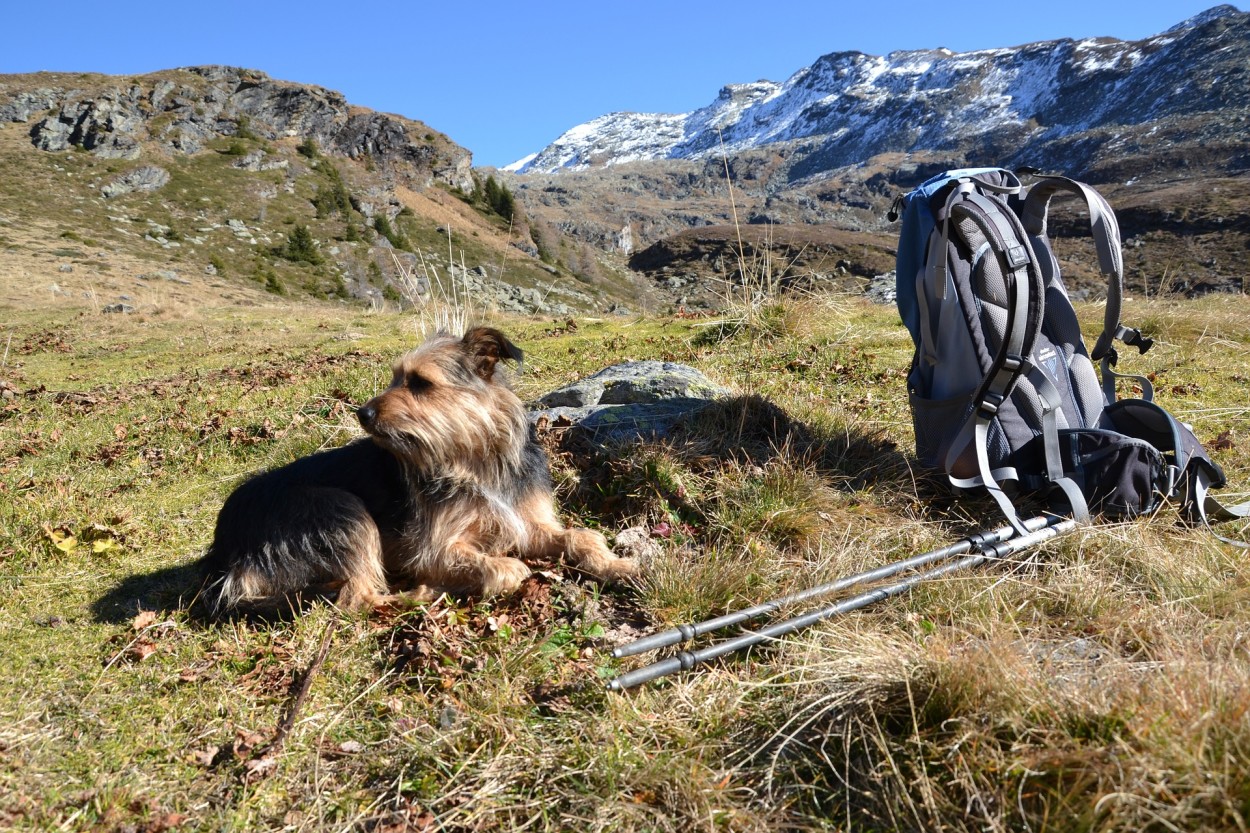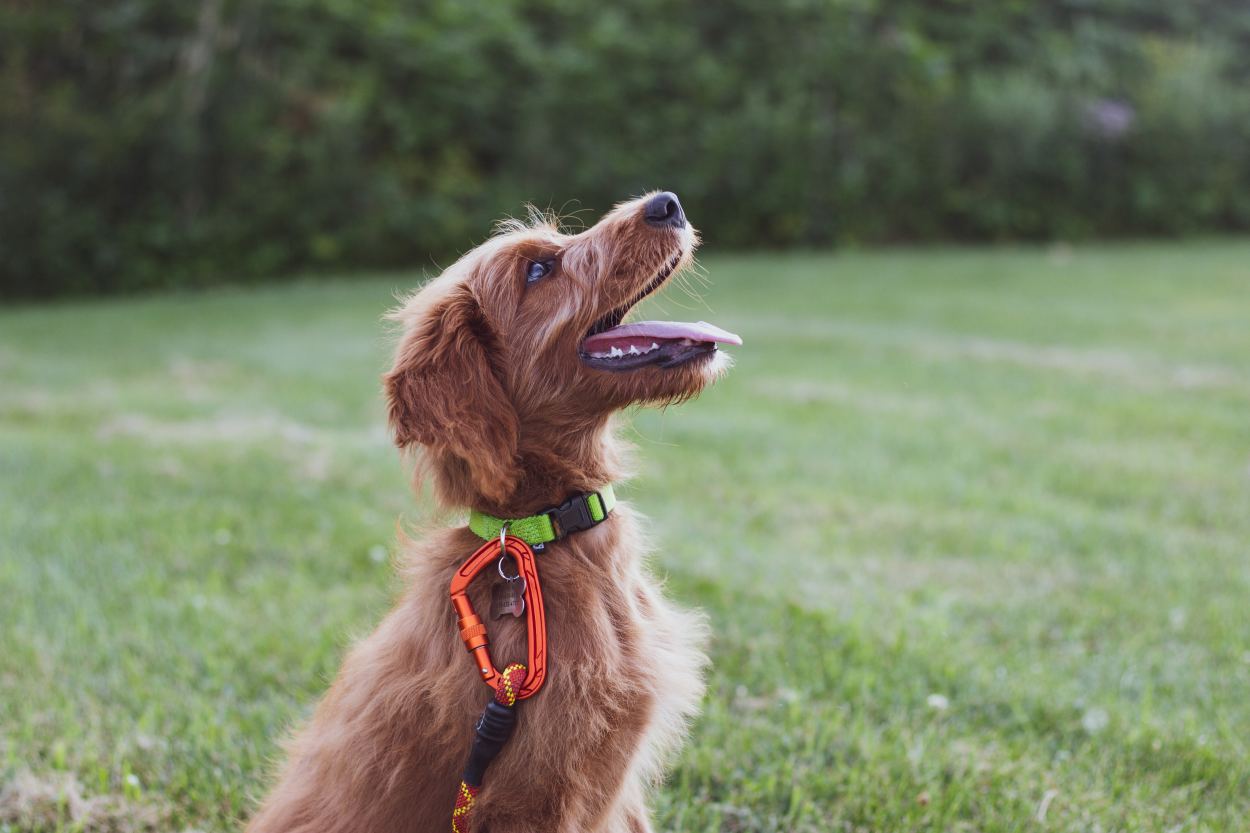Guide to Preparing your Dog for Backpacking Adventures
Justin
June 16, 2023
Embarking on a backpacking adventure with your four-legged companion can be an incredibly rewarding experience! However, just like humans, dogs require proper preparation to ensure their safety, comfort, and enjoyment during the trip. In this guide, we will explore essential steps to prepare your dog for backpacking. From physical conditioning to gear selection and safety measures, let's delve into the details to make your canine companion's backpacking experience a memorable one.

Consult with a Veterinarian:
Before undertaking any strenuous activity with your dog, it's crucial to consult with a veterinarian. A thorough check-up will help determine if your dog is physically fit for backpacking. The vet can provide guidance on any necessary vaccinations, preventive medications, and offer specific advice based on your dog's breed, age, and overall health.Build Physical Endurance:

Backpacking requires stamina, so gradually build your dog's endurance through regular exercise. Start with shorter hikes and gradually increase the duration and difficulty. This will help strengthen your dog's muscles and joints and acclimate them to different terrains. Include activities such as walking, jogging, and hiking to improve their cardiovascular fitness.
Invest in Proper Gear:
Investing in quality gear ensures your dog's comfort and safety during backpacking trips. Essential gear includes a properly fitted backpack, a sturdy leash and harness, collapsible food and water bowls, and a comfortable and well-ventilated doggie backpacking tent. Choose gear designed specifically for dogs, considering their size, breed, and the expected weather conditions. Ruffwear has a good selection of dog packs in varying sizes that I have found to be durable and effective on the trail! In addition to packs, they also have a great dog hitch system that can allow your dog to easily roam camp safely. I have found it to be durable and extremely useful! Albeit, a little bit heavier.Train for Trail Etiquette:

Well-behaved dogs enhance the backpacking experience for both you and fellow hikers. Prioritize basic obedience training, such as recall commands, walking on a leash, and staying calm around distractions. Training your dog to follow trail etiquette, like yielding to other hikers and avoiding wildlife, ensures a positive experience for everyone involved.
Pack Dog-Specific Essentials:
When packing for your dog, remember to bring essential items to keep them comfortable and safe. These include dog food, treats, and portable water filtration systems to provide clean drinking water on the trail. Carry a pet first aid kit with necessary supplies, poop bags for waste management, and a microfiber towel for drying them off if they get wet.Check Trail Regulations and Pet Policies:
Research trail regulations and pet policies in advance, as some trails may have specific rules for dogs. Most national parks only allow dogs on leash near roadways and developed areas, which generally means if you plan on hiking you must plan on leaving your furry friend behind. Understand leash requirements, off-limits areas, and any restrictions on camping with pets. Respecting these regulations ensures a harmonious experience for you, your dog, and other hikers.Monitor Weather Conditions:
Weather conditions significantly impact your dog's comfort and safety as well as your own. Check the weather forecast before your trip and be prepared for changes in temperature, precipitation, and other weather-related factors. Adjust your dog's gear, pack extra layers if needed, and ensure they have access to shade and water throughout the hike.Prioritize Hydration and Nutrition:
Proper hydration and nutrition are crucial for your dog's well-being during backpacking adventures. Carry enough water for both you and your dog, and offer frequent breaks for them to drink. Pack their regular food or lightweight, nutritious trail treats to provide energy during the hike. Avoid feeding them unfamiliar food that may upset their stomach.Practice Leave No Trace Principles:
Responsible pet ownership includes practicing Leave No Trace principles. Pack out all waste, including dog waste, and dispose of it properly. Minimize your impact on the environment by keeping your dog on designated trails, avoiding sensitive habitats, and respecting wildlife.Monitor Your Dog's Well-being:
Throughout the backpacking trip, closely monitor your dog's well-being. Watch forsigns of fatigue, dehydration, or discomfort. Take regular breaks to allow your dog to rest and recover. Check their paws for any cuts, thorns, or signs of irritation. Examine their coat for ticks or other parasites. If you notice any unusual behavior or symptoms, seek veterinary attention promptly.
Gradually Increase Backpack Weight:
If you plan to have your dog carry a backpack, start with an empty pack and gradually increase the weight over time. Begin with lightweight items and slowly add weight to a level that is comfortable for your dog. Be mindful of their breed, age, and physical capabilities. Distribute the weight evenly on both sides of the pack to maintain balance.Consider Training and Socialization:
Enroll your dog in training classes or work with a professional trainer to ensure they have excellent recall, remain calm in various environments, and respond to commands even in distracting situations. Additionally, socialize your dog to interact positively with other dogs and people on the trail.
Preparing your dog for backpacking adventures requires careful planning and consideration of their specific needs. By following the steps outlined in this comprehensive guide, you can ensure that your canine companion is physically fit, well-equipped, and comfortable throughout the journey. Remember to prioritize their safety, monitor their well-being, and adhere to trail regulations and pet policies. With proper preparation and attention, you and your dog can create unforgettable memories while exploring the great outdoors together. Happy backpacking with your furry friend!
Always consult with a veterinarian regarding your dog's health and suitability for outdoor activities. The information provided in this article is for general guidance purposes only and should not replace professional veterinary advice.